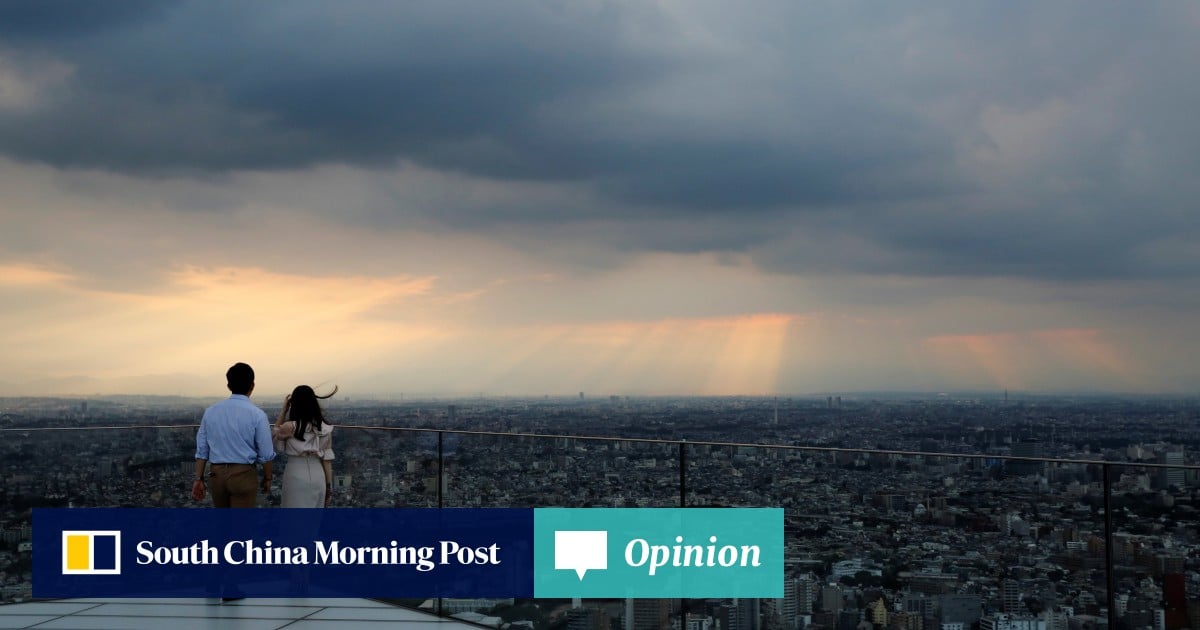For an insight into the shifting landscape of Asia’s luxury goods market, look no further than the first-quarter results of LVMH, the world’s largest luxury group. Excluding Japan, organic revenue in Asia – which is dominated by the Chinese market – declined 6 per cent. In Japan, by contrast, sales surged 32 per cent.
More tellingly, global sales of fashion and leather goods – LVMH’s biggest division – to Chinese customers in their home market and abroad rose 10 per cent, indicating that spending by Chinese tourists overseas helped offset weak sales at home. A large portion of their spending abroad was in Japan.
This is not surprising. The big story in global foreign exchange markets right now is the continued slide in the yen, which has dropped more than 10 per cent against the US dollar this year to a fresh 34-year low. The yen’s weakness, moreover, is broad-based, with Japan’s currency trading at multi-year lows versus its main Asian peers.
The plunge in the yen – which stems from the large interest rate differential between Japan and the United States – has been a boon to Japan’s tourism industry by boosting the spending power of overseas visitors. It has also increased the appeal of Japanese commercial property.
According to data from MSCI, Japanese retail and hotel properties are among a handful of segments of Asia’s commercial real estate industry in which investment activity last year was on a par with, or exceeded, the average annual level of transaction volumes in 2020-2022.
Benjamin Chow, head of real estate research for Asia at MSCI, said the strong performance of the retail sector was “all the more striking given that Japan has a declining population, something investors don’t like”.
If there is one statistic that says much about the drivers of demand in Asian property these days, it is the more than 3 million international tourists who visited Japan last month, an all-time high for a single month.
In an April 12 report, Bank of America noted that the markets in Asia where inbound tourism recovered fastest were those with the sharpest depreciation in local currencies, such as Japan and Vietnam.
Moreover, while the number of Chinese tourist arrivals in Japan remains significantly below pre-pandemic levels, Chinese tourist spending per head last year was 50 per cent higher than in 2019, driven by higher spending on luxury goods and high-value cultural experiences.
Japanese ‘katsu’, from English ‘cutlet’, now English word in its own right
Japanese ‘katsu’, from English ‘cutlet’, now English word in its own right
The plunge in the yen has created a rare opportunity for foreign tourists to purchase coveted luxury goods at a significant discount. According to Bloomberg, a Chanel classic handbag in Tokyo is US$1,423 cheaper, after the duty-free discount, than in New York.
Tokyo’s prime retail hubs of Ginza and Omotesando have benefited hugely from the dramatic surge in overseas tourism, with average ground-floor rents reaching record highs in the final quarter of last year, data from JLL shows.
Yet Japan’s hotel sector is the stand-out performer. According to Savills, transaction volumes last year were 40 per cent higher than the average annual level between 2013 and 2022. Furthermore, the share of foreign investment in the sector was the highest since 2008.
Tourists visit Kotokuin Temple to view and pray to the 13.35m tall Great Buddha of Kamakura, in Kamakura, south of Tokyo, on April 21. The number of foreign visitors to Japan in March hit over 3 million, a record for a single month. Photo: EPA-EFE
In no other leading hotel market have the sector’s key performance metrics recovered as dramatically as in Japan. According to data from CoStar, average daily rates in the first three months of this year in Tokyo, Osaka and Kyoto were 30-50 per cent higher in US dollar terms than in the corresponding period in 2019. Revenue per available room was 18-37 per cent higher.
This is all the more remarkable given that occupancy rates are still significantly lower due to acute labour shortages that have prevented many hotels from operating at full capacity. The overseas tourist boom, however, has made it easier for operators to raise daily rates.
It has also contributed to severe supply constraints, with a steep rise in construction costs and the lack of skilled workers stymieing development. Despite a marked increase in supply in recent years, “a very tight market has helped hoteliers increase their rates sharply”, said Hiroshi Okubo, head of research at CBRE in Tokyo.
Chinese tourists make a welcome return to Japan for high-end medical services
Chinese tourists make a welcome return to Japan for high-end medical services
To be sure, the yen-fuelled surge in inbound tourism is not the only factor at play. First, Japan was a late reopener, causing a build-up of pent-up foreign demand for travel and shopping that has yet to peak.
Second, Japan relies mainly on domestic tourism. The weak yen has made it more expensive for Japanese travellers to go abroad, resulting in more staycations that have provided a further fillip to the retail and hotel sectors.
Third, the weak yen is only one of several factors that have increased Japan’s appeal to foreign investors. Political stability, a mature and relatively transparent market, and the increasing attractiveness of Japan when sentiment towards China has deteriorated are just as important. Indeed, the problem in Japan is too much money chasing too few desirable property assets.
Still, the strong performance of the retail and hotel sectors challenges the perception of Japan as a country in decline, with a shrinking and ageing population. “Look at all the investment activity. Look at Tokyo’s skyline. Look at all the cranes,” said Joel Rothstein, chair of the Asia real estate practice at Greenberg Traurig.
While the plunge in the yen is a headache for Japanese policymakers, and there are growing concerns about overtourism, the decline in Japan’s currency has played a pivotal role in accelerating the recovery of Asia’s tourism industry. In the retail and hotel sectors, exchange rates matter.
Nicholas Spiro is a partner at Lauressa Advisory





